We thought finding the perfect sensory toy for our preschoolers would be easy. Unfortunately, we were wrong! With so many options to choose from, it can be overwhelming.
But fear not! We’ve done the research and put together a guide to help you evaluate the top-rated sensory toys for your little ones. From fine motor skills development to cognitive and social growth, we’ve got you covered.
Get ready to make playtime a sensory-filled adventure for your preschoolers!
Key Takeaways
- Sensory toys play a vital role in a preschooler’s overall development and future learning experiences.
- When choosing sensory toys, it is important to consider factors such as age appropriateness and safety features.
- Sensory toys can promote fine motor skills development through activities like hand-eye coordination and finger strength.
- Sensory toys can also support cognitive development by stimulating language skills, sensory integration, problem-solving abilities, and memory development.
Benefits of Sensory Toys
As we explore the benefits of sensory toys, it’s important to understand how they can enhance a preschooler’s development.
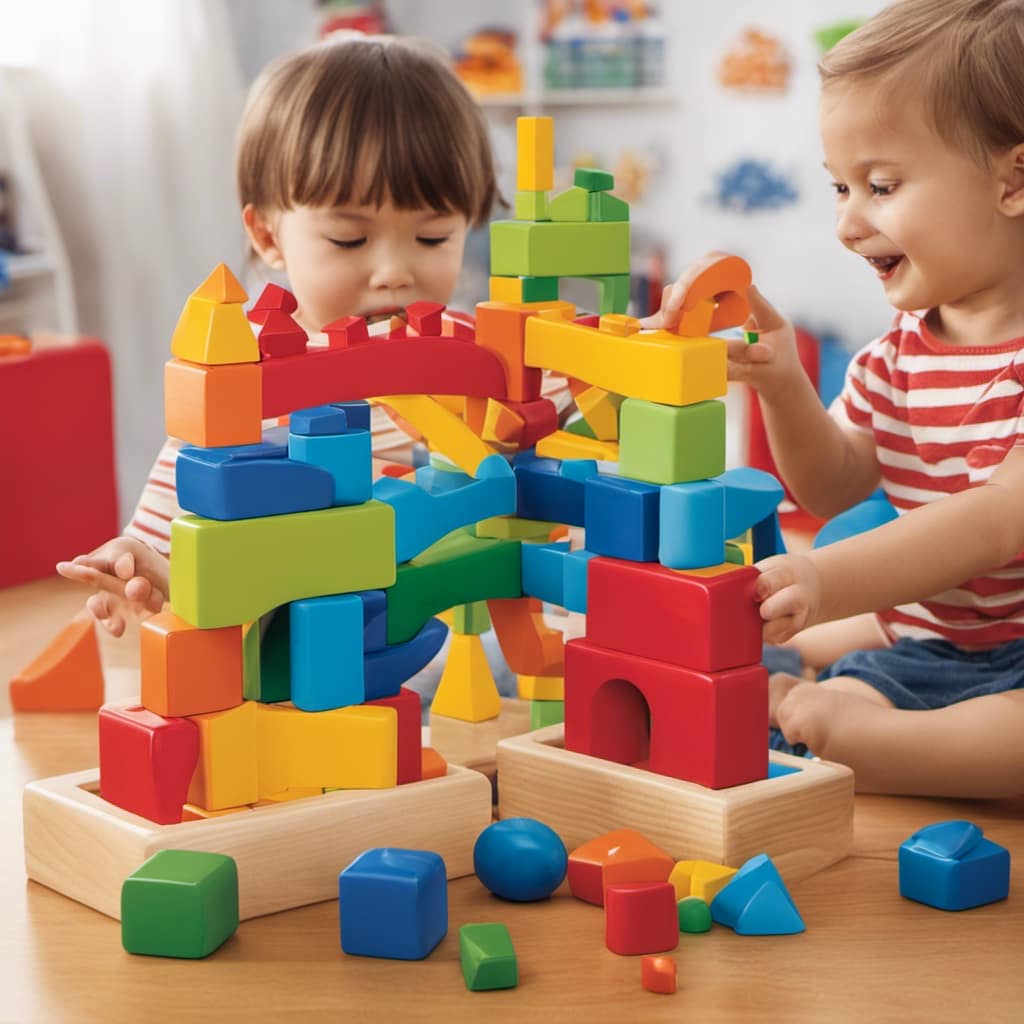
Sensory play benefits children by stimulating their senses and promoting cognitive, physical, and emotional growth. When children engage with sensory toys, they’re actively using their senses, such as touch, sight, and hearing, to explore the world around them. This kind of stimulation helps to develop their sensory processing skills, which are crucial for learning and problem-solving.
Furthermore, sensory play encourages language development and improves fine motor skills as children manipulate different textures and objects. It also provides opportunities for social interaction and creativity, fostering imagination and self-expression.
The importance of sensory stimulation can’t be overstated, as it plays a vital role in a child’s overall development and prepares them for future learning experiences.
Factors to Consider When Choosing Sensory Toys
When evaluating sensory toys for preschoolers, we consider important factors to ensure their suitability and effectiveness in promoting sensory development. Here are four key factors to consider when choosing sensory toys for young children:
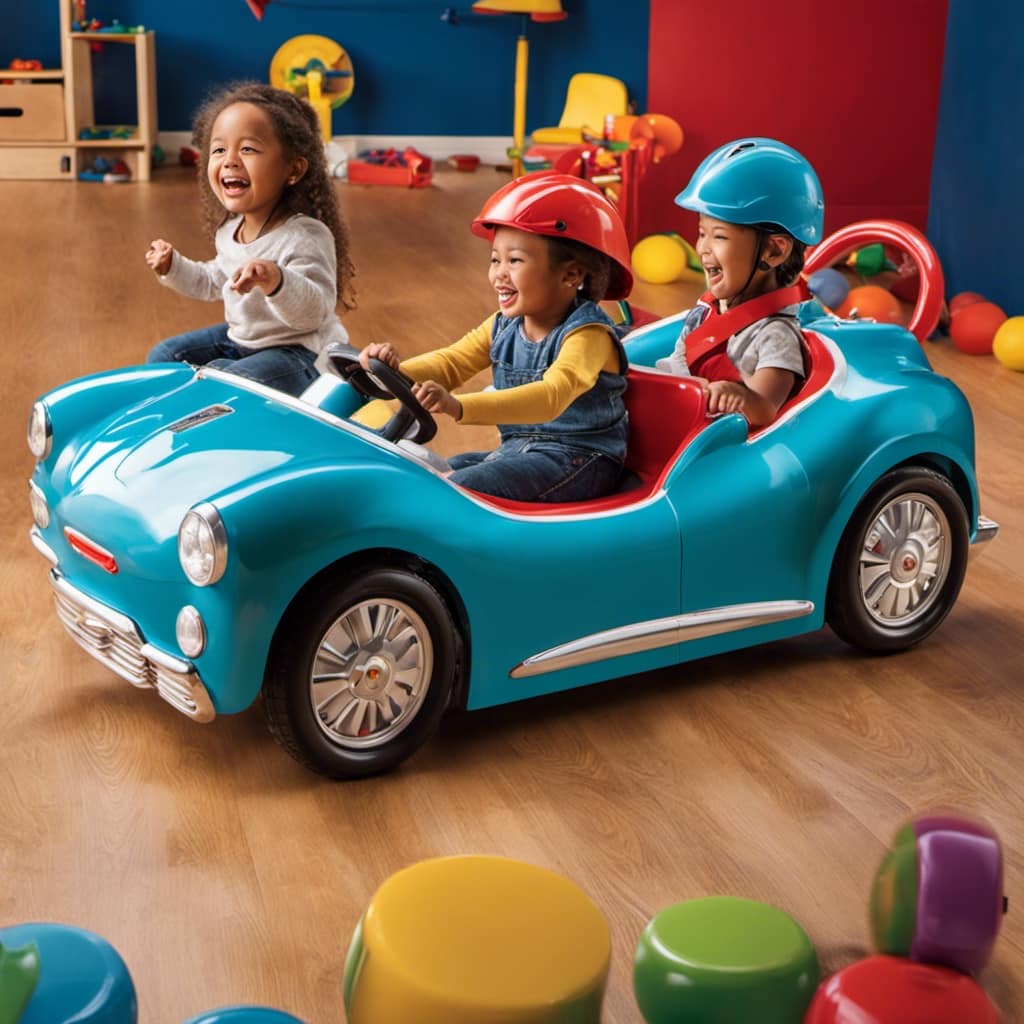
-
Age Appropriateness: It’s crucial to select toys that are suitable for a child’s age and developmental stage. Age-appropriate toys provide the right level of challenge and stimulation, fostering optimal sensory development.
-
Safety Features: Safety should be a top priority when selecting sensory toys. Look for toys that are made from non-toxic materials, have no small parts that can be choking hazards, and meet safety standards.
-
Tactile Toys: Tactile toys engage a child’s sense of touch and can include items like textured balls, squishy toys, or sensory bins filled with materials like sand or rice. These toys help develop fine motor skills and tactile sensitivity.
-
Visual Stimulation Toys: Visual stimulation toys, such as colorful mobiles or light-up toys, captivate a child’s visual senses and promote visual tracking and focus.
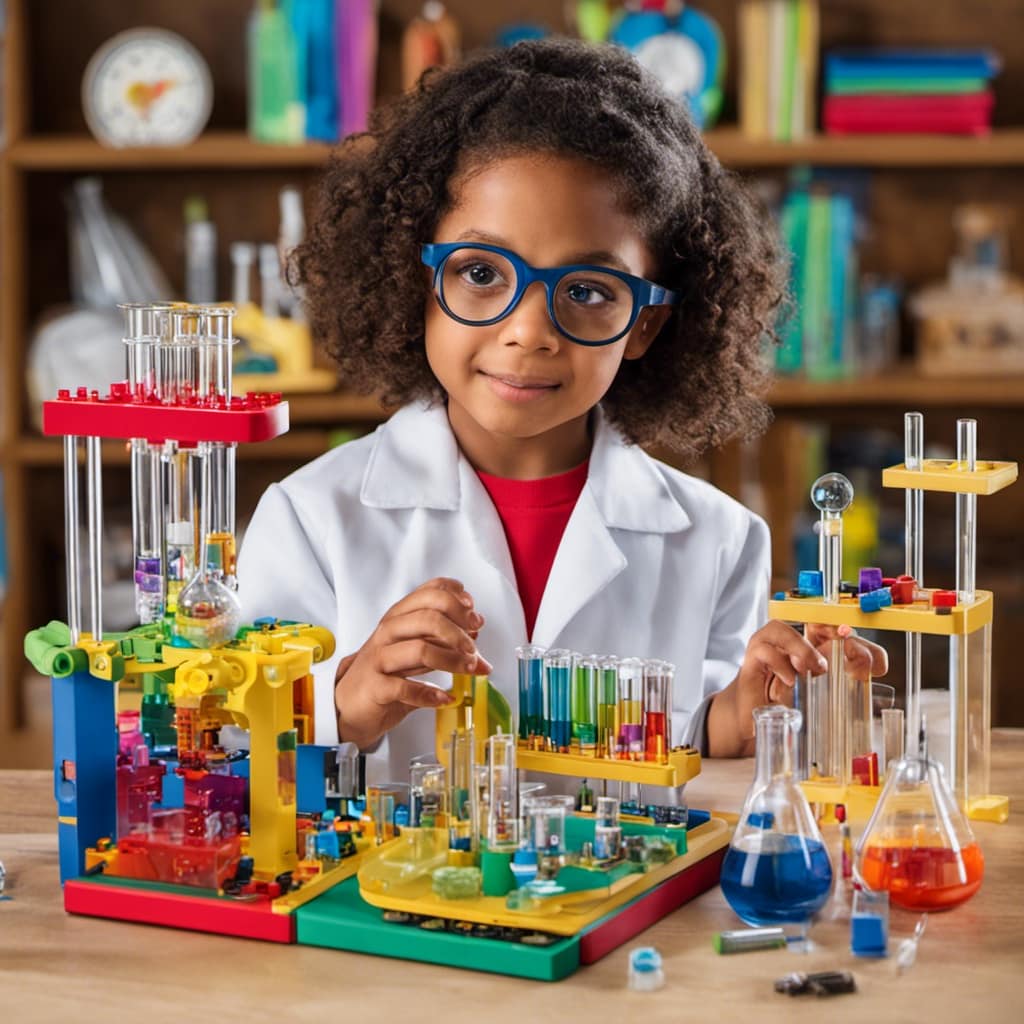
Considering these factors will help you choose sensory toys that are age-appropriate, safe, and beneficial for a child’s sensory development.
Now, let’s move on to discussing the top-rated sensory toys for fine motor skills development.
Top-Rated Sensory Toys for Fine Motor Skills Development
Now let’s explore some top-rated sensory toys that are specifically designed to enhance fine motor skills development. Fine motor skills involve the use of small muscles in the hands and fingers, and they are crucial for tasks such as writing, buttoning clothes, and using utensils. For children with sensory processing disorder or those who simply enjoy sensory exploration, these toys can provide a fun and engaging way to practice and improve their fine motor skills. Here are three highly recommended sensory toys:
| Toy Name | Description | Benefits |
|---|---|---|
| Squigz | Colorful suction cups | Enhances hand-eye coordination and finger strength |
| Play-Doh | Moldable clay | Develops finger dexterity and grip strength |
| Busy Board | Activity board | Improves hand coordination and problem-solving skills |
Sensory Toys for Cognitive Development in Preschoolers
Let’s explore how sensory toys can support cognitive development in preschoolers.
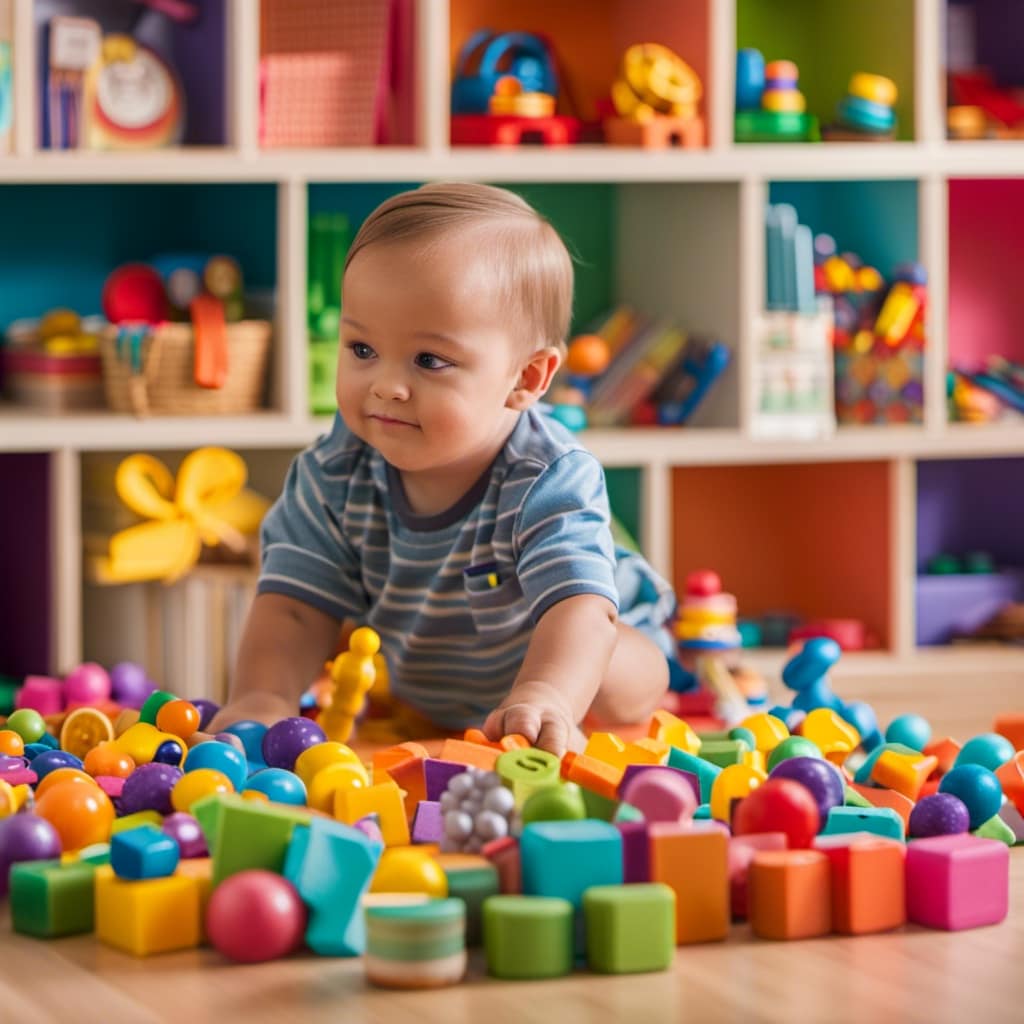
Sensory toys aren’t only beneficial for fine motor skills development, but they also play a crucial role in enhancing cognitive abilities. Here are four ways that sensory toys can promote cognitive development in preschoolers:
-
Sensory toys for language development: Toys that stimulate different senses, such as touch and sound, can help preschoolers develop their language skills by encouraging them to explore and describe their experiences.
-
Sensory toys for sensory integration: Sensory toys that provide a variety of textures, colors, and sounds can help preschoolers integrate sensory information, improving their ability to process and make sense of the world around them.
-
Sensory toys for problem-solving: Toys that require problem-solving skills, such as puzzles or building blocks, can enhance cognitive abilities like critical thinking, reasoning, and spatial awareness.
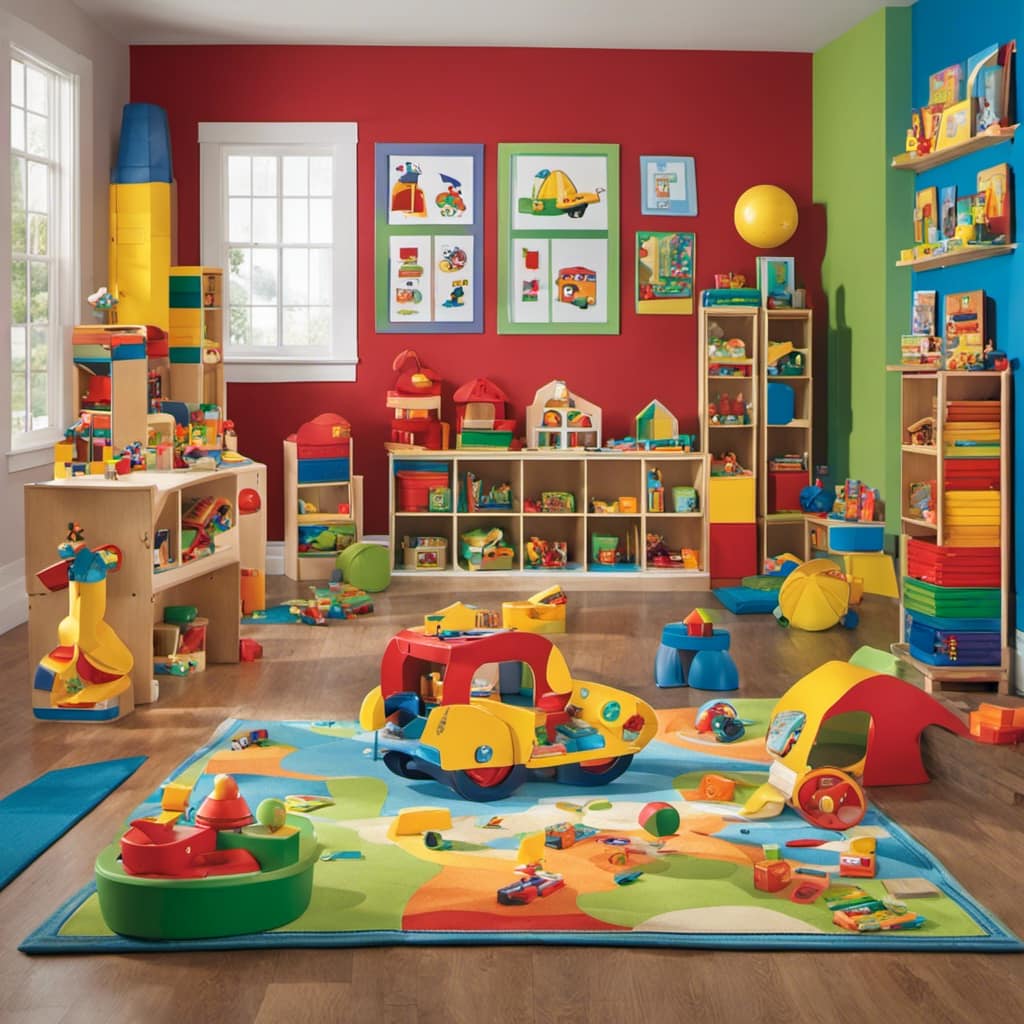
-
Sensory toys for memory development: Sensory toys that involve memory tasks, such as matching games or memory cards, can improve preschoolers’ memory skills and cognitive flexibility.
By incorporating these sensory toys into playtime, parents and educators can support the cognitive development of preschoolers, setting a solid foundation for their future learning and growth.
Now, let’s transition into the subsequent section about ‘interactive sensory toys for social and emotional growth’.
Interactive Sensory Toys for Social and Emotional Growth
Our top-rated sensory toys for preschoolers focus on fostering social and emotional growth through interactive play. These toys are designed to engage children in activities that promote sensory exploration and provide opportunities for calming and relaxation.

Research shows that interactive sensory toys can help children develop essential social and emotional skills, such as empathy, communication, and self-regulation. For example, toys like squishy stress balls and textured fidget toys can help children manage their emotions and reduce anxiety.
Additionally, interactive toys that encourage cooperative play, such as building blocks or pretend play sets, can enhance social interactions and teach children about sharing, taking turns, and problem-solving.
Frequently Asked Questions
Are Sensory Toys Only Beneficial for Preschoolers With Special Needs or Sensory Processing Disorders?
Sensory toys offer benefits to all preschoolers, not just those with special needs or sensory processing disorders. They promote development of fine motor skills, sensory exploration, and cognitive growth in typical preschoolers.
Are There Any Safety Concerns to Consider When Using Sensory Toys With Preschoolers?
When using sensory toys with preschoolers, it is important to consider safety concerns. We must ensure that the toys are age-appropriate, free from small parts that can be choking hazards, and made from non-toxic materials.
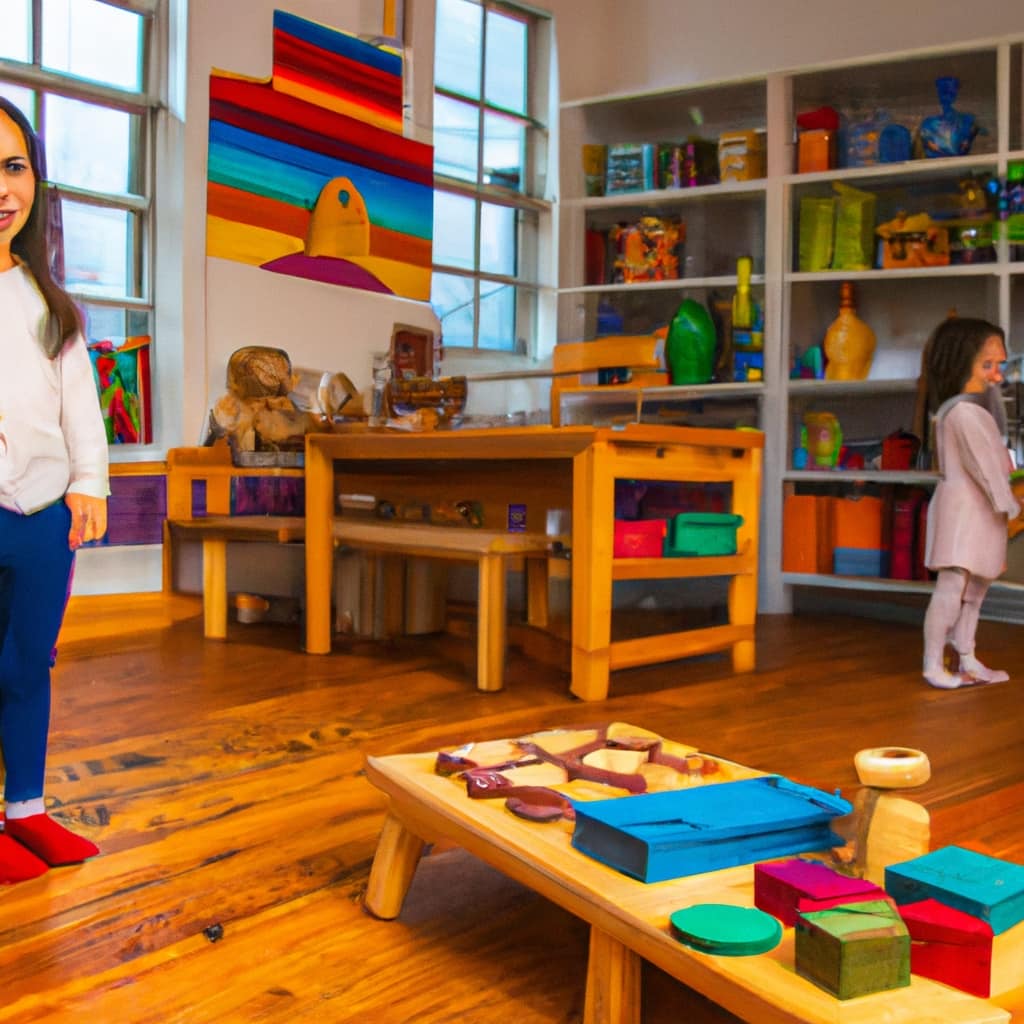
How Long Should a Child Play With Sensory Toys Each Day to See the Maximum Benefits?
We’ve found that sensory play offers numerous benefits for preschoolers. To maximize these benefits, it is recommended that children engage in sensory play for around 30 minutes to an hour each day.
Can Sensory Toys Help With Language Development in Preschoolers?
Sensory toys can indeed help with language development in preschoolers. They engage multiple senses, enhancing cognitive skills and promoting communication. We recommend choosing toys that encourage verbal interaction and vocabulary expansion.
Are There Any Specific Sensory Toys That Can Help With Self-Regulation and Calming Techniques for Preschoolers?
We found that certain sensory toys can aid in self-regulation and calming techniques for preschoolers. They provide a soothing touch or gentle pressure, helping children feel more centered and focused.
Conclusion
In conclusion, when it comes to choosing sensory toys for preschoolers, it’s important to consider the benefits they offer in terms of fine motor skills development, cognitive growth, and social-emotional learning.

By providing interactive and engaging experiences, these top-rated toys can greatly enhance a child’s development in various areas.
As the famous poet Maya Angelou once said, ‘You can’t use up creativity. The more you use, the more you have.’
So let’s encourage our little ones to explore, create, and learn with the help of these wonderful sensory toys.










